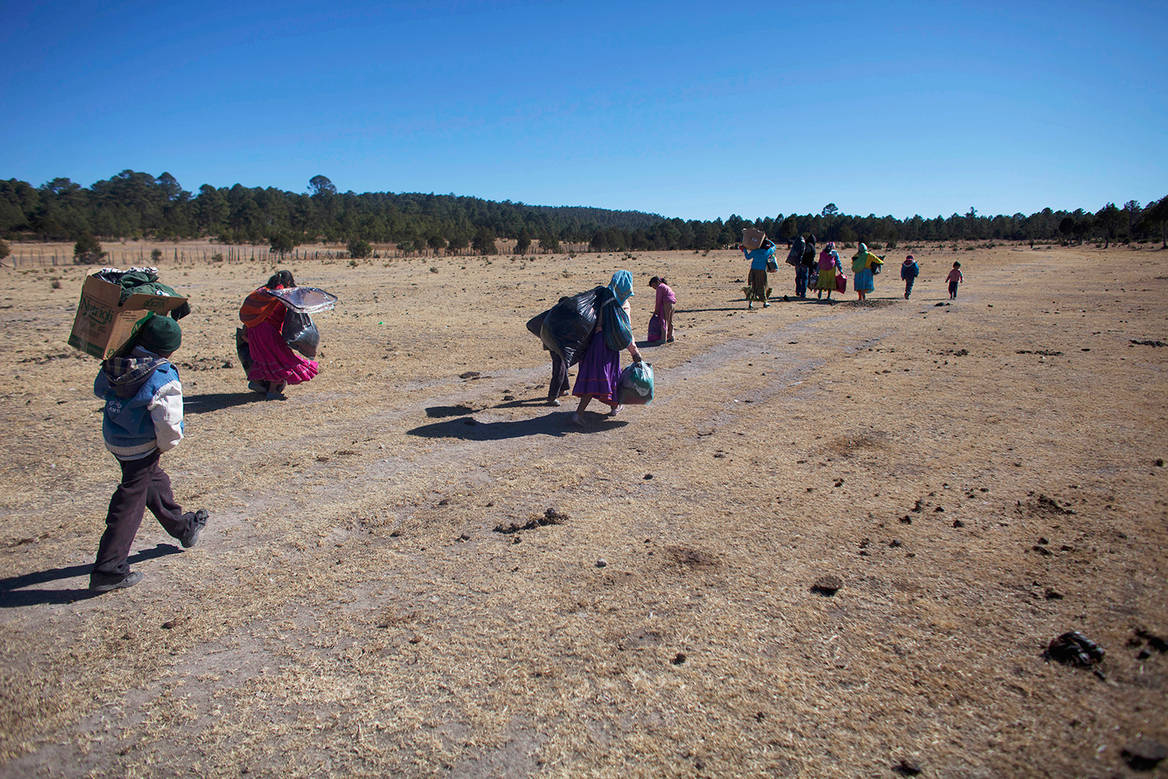Climate Change, Migration and Security: Best-Practice Policy and Operational Options for Mexico
Climate change is heavily analysed, but its potentially significant effects on the movements of people are less so. This report presents a quantitative model of Mexican climate-induced migration to address this critical gap
Migration in Mexico, whether international or domestic, is not a new issue. Yet little research exists on the impact changes in climate are likely to have on these flows of people. Models predict that temperatures are likely to rise, precipitation is likely to decrease, accompanied by more extreme weather events.
The decision of an individual to migrate is a complex one, a result of many different factors. But the effects of climate-induced migration may be significant, as institutions and infrastructure come under increasing strain from new arrivals.
This Whitehall Report assesses the impact these environmental changes could have on migration in Mexico. Using high-resolution atmospheric and demographic data, it develops a comprehensive econometric model to determine the likely outcomes of climate-induced migration in Mexico. In light of these quantitative observations, this report also investigates implications for resource security, based on a range of qualitative research including interviews with academics, policy-makers and civil society. The report then turns to the Mexican response between 2006 and 2012, considering what successes have been achieved, but also where improvements in policy could be made.
The recommendations presented in this report will be of use for practitioners and scholars – of all regions – facing the challenge of managing and measuring climate-induced migration.
About the Authors
Elizabeth Deheza
Elizabeth Deheza is a Research Fellow on the Climate Change and Security Programme at the Royal United Services Institute. She took an honours degree in International Relations from San Francisco State University before undertaking postgraduate study at the Diplomatic Academy of Vienna and completing the MALD programme at the Fletcher School of Law and Diplomacy. Prior to joining RUSI, Elizabeth worked in Kuala Lumpur where she researched Malaysia’s foreign policy for the Institute of Diplomacy and Foreign Relations.
Jorge Mora
Dr Mora holds a PhD in Economics from the College of Mexico. He is currently professor and researcher at the Institute of Technology and Superior Studies of Monterrey in Mexico City Campus (ITESM-CCM) and member of the National System of Researchers. Dr Mora also participates as a researcher for the Programme of the Studies of Economic Change and Sustainability of Mexican Agro Mexicano (PRECESAM) of El Colegio de Mexico and the University of California at Davis. He has various national and international publications, and he has been a consultant to various agencies of the Mexican government, the UN, the World Bank and the Inter-American Development Bank. His main areas of interest are economic development, international migration, climate change, poverty, inequality and food security in the rural sector.

